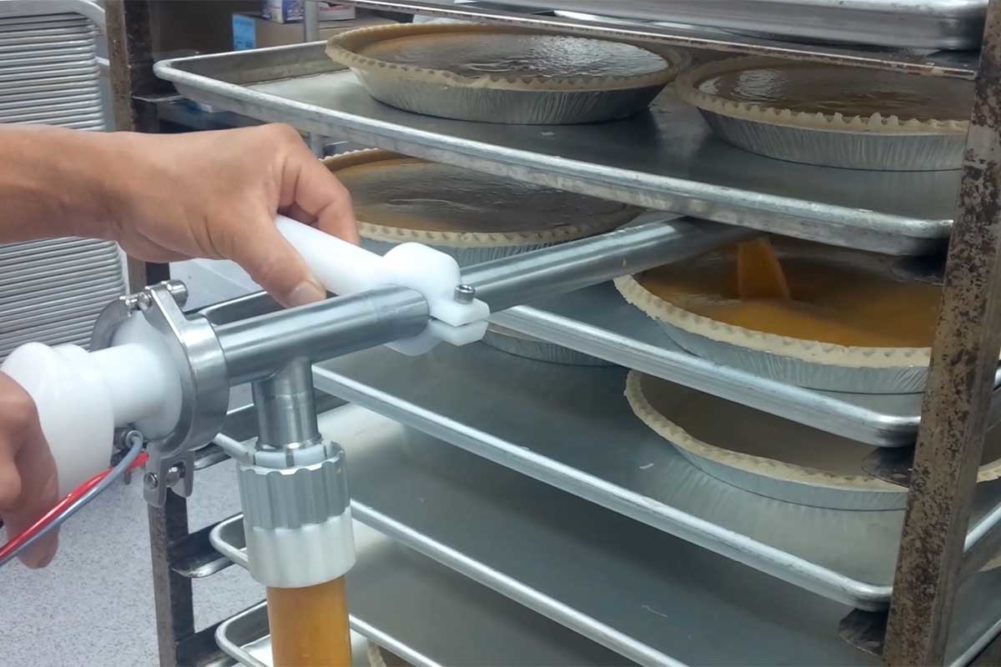Many pie makers are looking for not only versatility but also the ability to increase production as needed.
“We see more and more demand for equipment that can handle production in a more flexible way,” said Sonia Bal, director of global marketing, Unifiller Systems Inc. “For producers who specialize in pie production alone, it’s about the ability of the depositor to handle multiple SKUs and varieties, perhaps with the addition of different heads or attachments or with dialed-in recipes via servo models. With producers who offer pies in addition to other product lines, it’s about the versatility of the equipment. Can a pie depositor be quickly switched over to handle cake batters, for example?”
She also said that maintaining quality means having depositors that can handle large volumes, chunky inclusions and can portion accurately. This is where servo-driven depositors provide volume consistency, repeatability and speed.
“Technology, paired with servo-driven depositors, is enabling bakers to automate their decorating process with more versatility,” Ms. Bal explained. “For example, our depositors combined with a cake head or decorating nozzle can provide cream-topped pies with various designs or bordering.”
Having maximum flexibility comes down to ensuring that different types of equipment can be swapped out quickly and that each type of equipment is designed to handle the widest range of filling viscosities, temperatures and types of inclusions, said Chuck Sena, director of marketing and sales, Axis Automation.
“One of the overlooked advantages of high-precision equipment is that it can dramatically reduce waste,” he added. “Simply making sure the equipment dispenses the right amount of dough, fillings or toppings has a big contribution to overall housekeeping during production. It starts by putting the right amount of stuff in the right place.”
Machines that are easy to use and have short and direct product flows through the portioning device will keep lines clean, said Jeff Zeak, national development manager, bakery, Reiser. He also stressed the importance of training operators and sanitation staff by the equipment supplier to learn best sanitation practices.
“Food safety concerns considered in the design of the equipment are all important aspects of line efficiency, personal and food safety that need to be considered when selecting the components of the pie line system,” Mr. Zeak said.
Robin Venn, president of Tippin’s Gourmet Pies, Kansas City, Kan., said his company is like most that clean as they go to maintain safety and sanitation. He also said that automation will have the greatest impact on efficiency.
“We are looking at a number of processing steps that we can automate and leverage our current workforce and the increased volume,” Mr. Venn said. “Automation also has an impact on improving quality as processes become more consistent and human intervention is reduced.”
Today’s machinery is often designed for easy maintenance and sanitation.
“Essential parts can be easily removed which allows for easy access during cleaning and maintenance actions. Of course, all parts are designed within the ergonomic Rademaker Sigma guidelines with special focus on rounded edges and process visibility,” said Nick Magistrelli, vice president of sales, Rademaker USA.
Servo technology options have reduced mechanical components by as much as 50% for some Colborne modules, which reduces the time needed to clean equipment, said Rick Hoskins, chief executive officer, Colborne Foodbotics.





